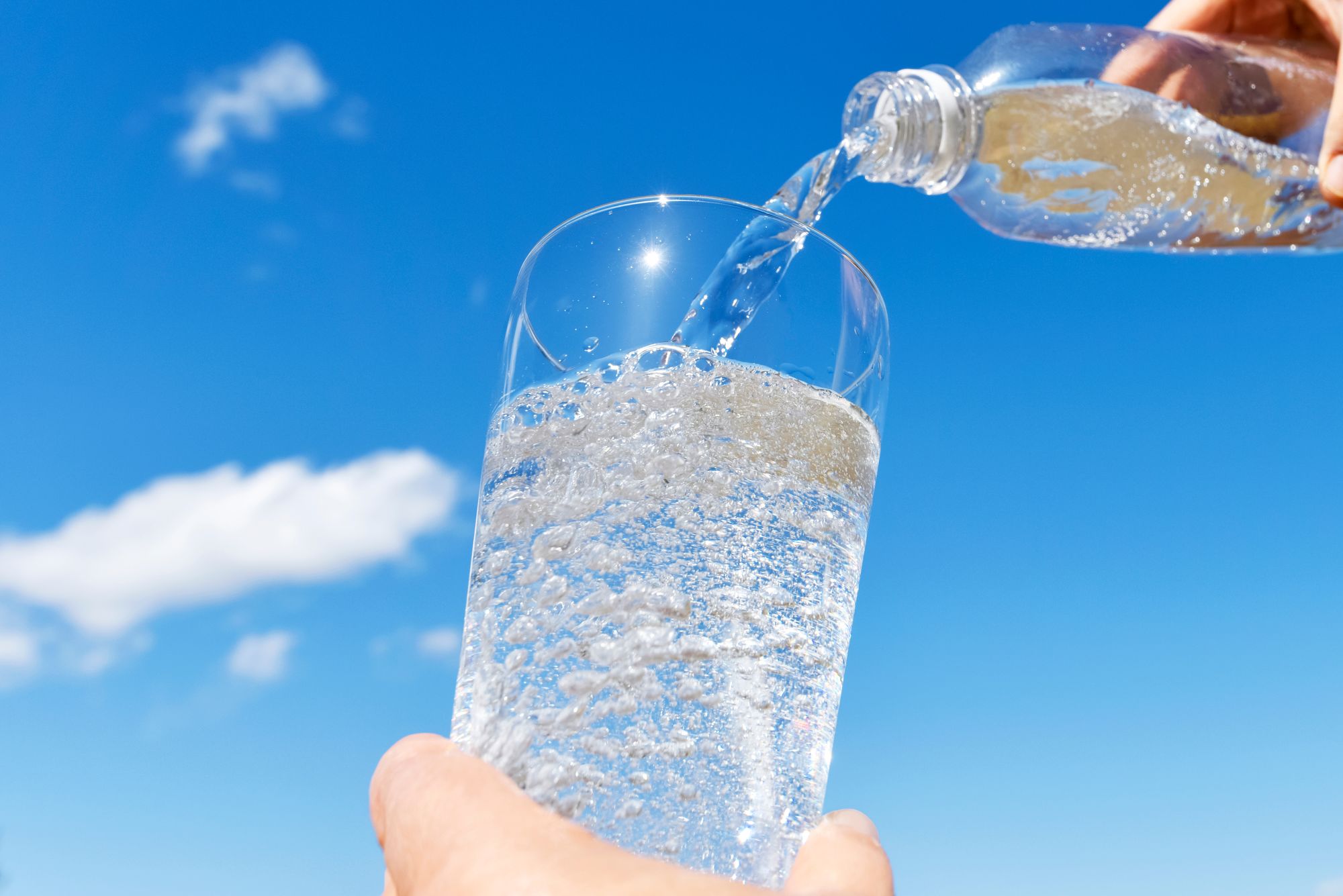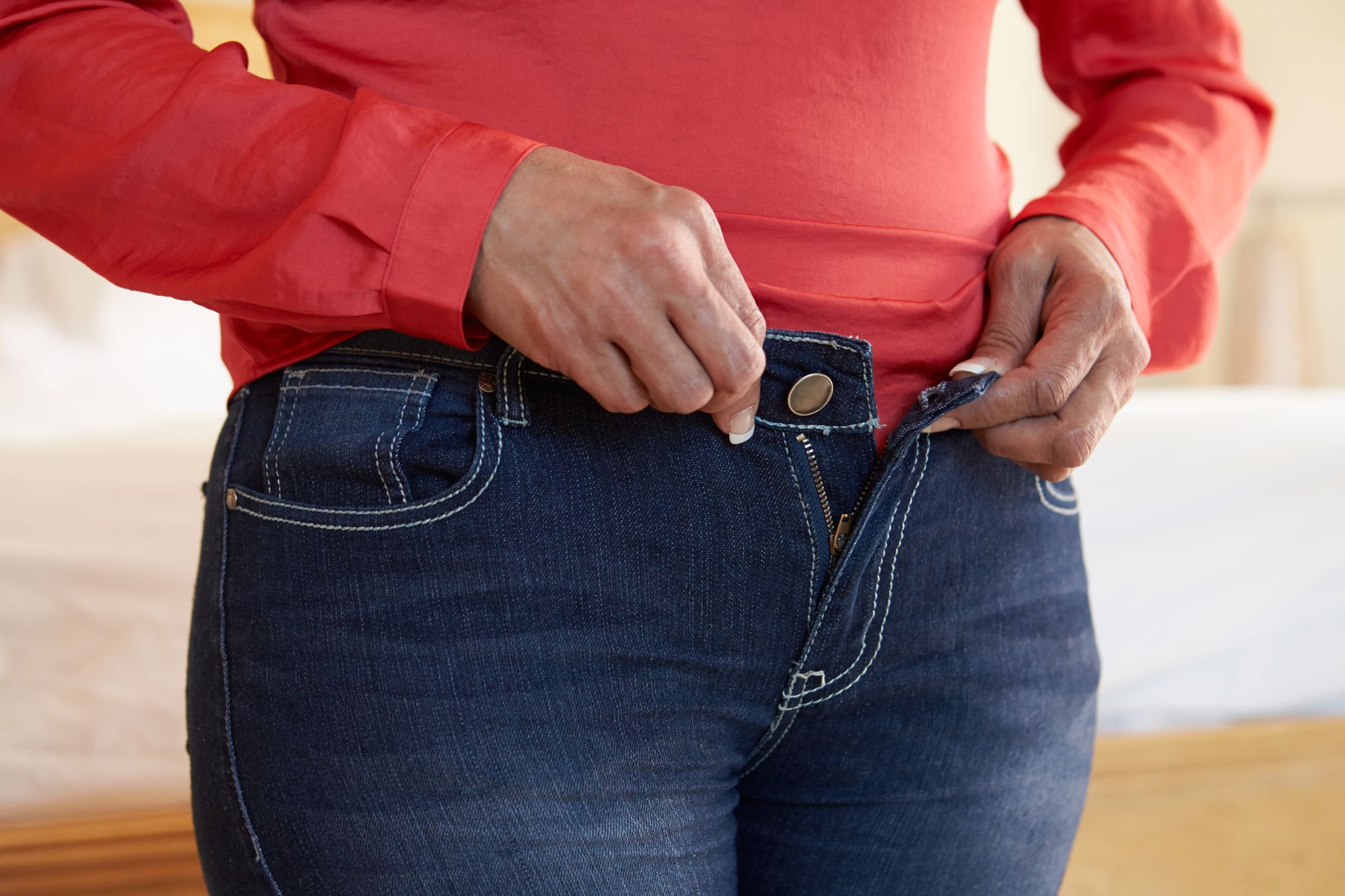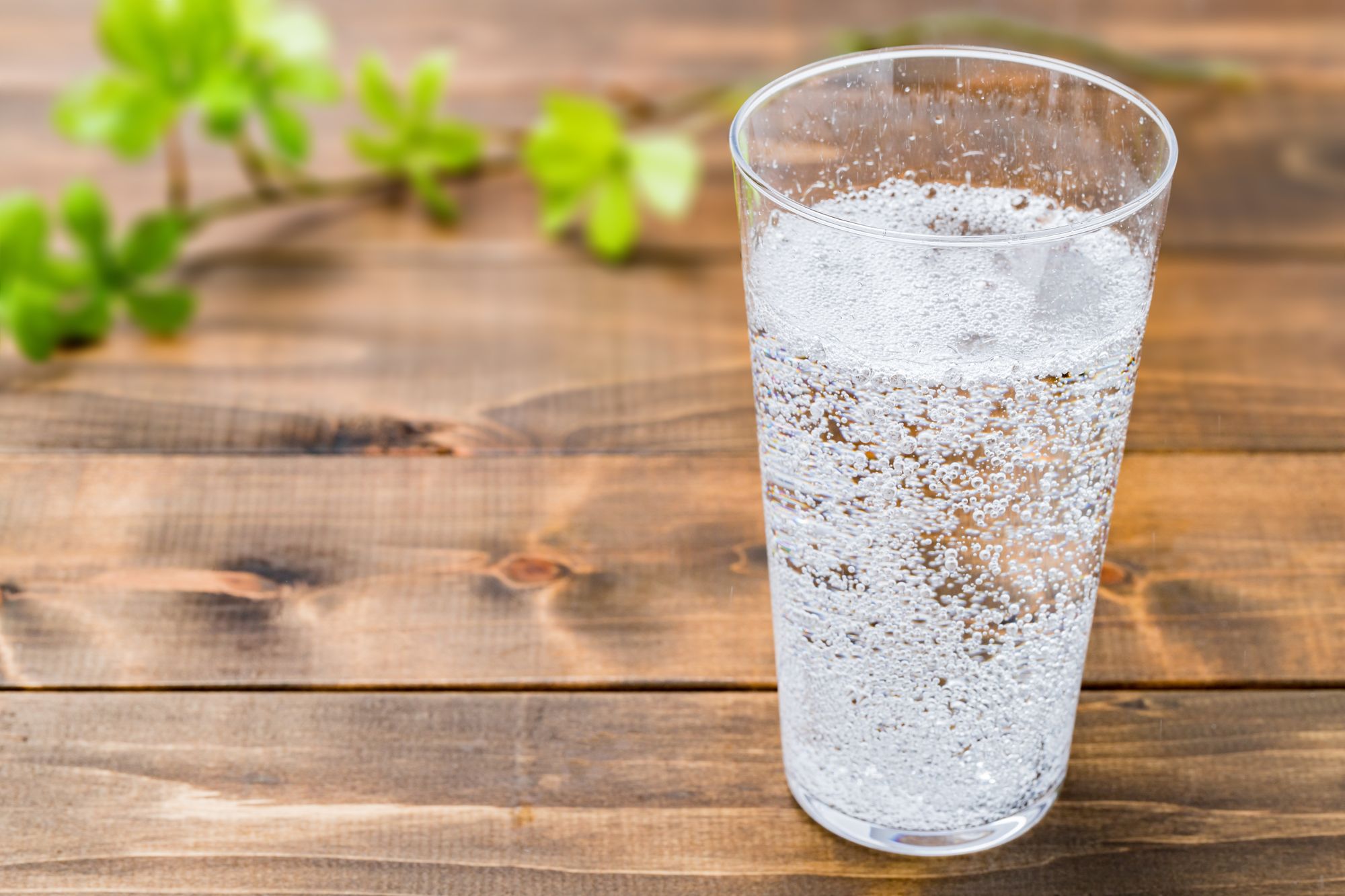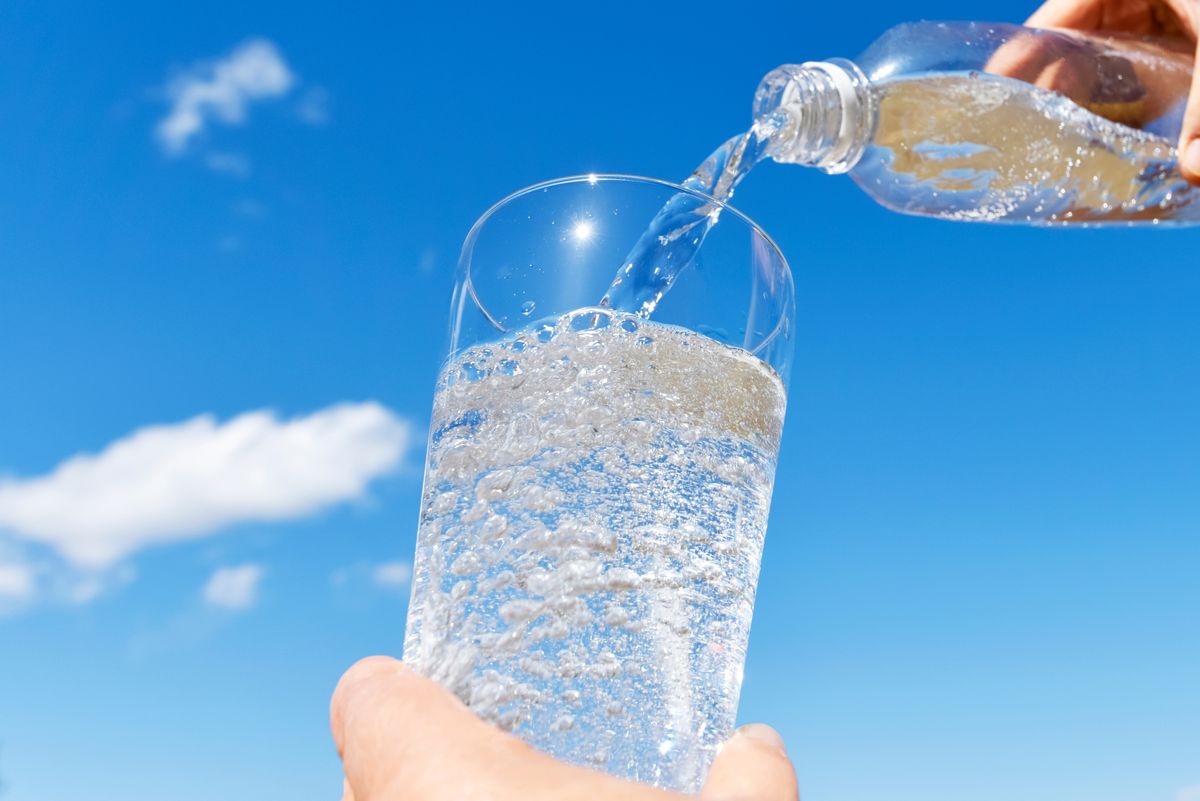Is carbonated water actually healthy for you, or should you be cautious about what you're sipping?
It's easy to assume that carbonated water is a harmless drink due to its bubbly nature. However, not all carbonated water drinks are created equal. Just like an apple can be turned into a sugary dessert, some carbonated water concoctions can be unhealthy. Soda, for instance, is essentially carbonated water that's adulterated with high-fructose corn syrup, caffeine, brominated vegetable oil, and food coloring.
Even some sparkling waters flavored with fruit essence may not be the best beverage for someone who is health-conscious. That being said, carbonated water by itself is a relatively healthy drink that can hydrate you just as well as still water. It's important to read labels and be mindful of what's in your carbonated water to ensure you're making a healthy choice.
Understanding the Mystery of Carbonated Water

To put it simply, carbonated water is water infused with CO2, the same gas you exhale. This creates bubbles that turn plain water into fizzy water, also known as carbonated water, soda water, seltzer, club soda, and more. When CO2 dissolves in water naturally underground, it's called sparkling water and can contain minerals like sodium and calcium. However, when CO2 is pumped into water through an industrial process, you get soda, which can contain sugar, coloring, and other additives.
Seltzers and sparkling waters have become increasingly popular due to consumer desires to avoid sugary and high-calorie sodas. In fact, the market for these bottled beverages is expected to grow to $93.6 billion by 2033, according to Future Market Insights. With America's obesity crisis and over 37 million diabetics, many experts welcome this trend towards healthier beverage options.
Possible Negative Effects of Consuming Carbonated Water: 8 Factors to Consider

1) How to Improve Your Hydration: Tips and Tricks
If you struggle to drink enough plain water throughout the day, carbonated water can help you stay hydrated, according to Lauren Manaker, MS, RDN, author of The First Time Mom's Pregnancy Cookbook and Fueling Male Fertility. Moreover, there is no scientific evidence to suggest that carbonated water is bad for you, says registered dietitian Mary Wirtz, MS, RDN, CSSD, a board-certified sports dietitian, and consultant for Mom Loves Best. To increase baseline hydration, Wirtz recommends that women consume 11.5 cups of hydrating beverages daily, while men should aim for 15.5 cups, according to the National Academies of Sciences, Engineering, and Medicine. Carbonated water can make this goal more achievable.
2) How Carbonated Water Can Make Drinking Water More Enjoyable
Carbonated water can make drinking water more enjoyable due to its fizzy texture. Katherine Gomez, a registered dietitian, says, "Carbonated waters come in a variety of highly satisfying flavors, and we often feel like having more and more." This makes it a great alternative for people who struggle to drink plain water. Additionally, you can enhance the taste of plain carbonated water by adding lemon juice or fresh/frozen fruit slices.
3) Possible Bloating: The Effects of Drinking Carbonated Water on Your Stomach
Carbonated water and bloating can go hand in hand due to the air swallowed while drinking it. This can be particularly problematic for those with irritable bowel syndrome (IBS), warns Lauren Manaker, MS, RDN, author of The First Time Mom's Pregnancy Cookbook and Fueling Male Fertility.
The fizzy bubbles in carbonated water can cause constipation or lead to loose bowel movements, but on the other hand, they can promote calorie-free satiety. According to a study conducted on a small group of young women, carbonated water is more effective than still water in terms of inducing feelings of fullness and reducing hunger. However, you can reduce bloating by drinking plain carbonated water and avoiding flavored varieties.
4) The Potential Link Between Carbonated Water Consumption and Weight Gain

Carbonated water, whether with or without artificial sweeteners, may lead to weight gain and a higher body mass index despite being calorie-free, according to several studies. The reason for this is that artificial sweeteners can have negative effects on digestive health and blood sugar levels, as well as serious health side effects. Research has shown that nonnutritive sweeteners can alter the intestinal microbiome in both mice and humans, negatively impacting metabolism and glucose response. Observational studies have also linked nonnutritive sweeteners to increases in weight, waist circumference, obesity, hypertension, metabolic syndrome, type 2 diabetes, and cardiovascular events. Additionally, small experiments on rats and humans have suggested that the carbon dioxide in beverages causes the release of the hunger hormone ghrelin, which may lead to overeating.
5) Is Carbonated Water Helpful for Weight Loss?
While there are few studies on the effects of pure sparkling water on weight loss, zero-calorie diet soda has been a popular choice for dieters for decades. It contains carbonated water with added coloring and artificial sweeteners, and some studies have shown it to be effective in reducing body weight. Carbonated water without added coloring and artificial sweeteners may also work the same way as artificially sweetened no- and low-calorie drinks.
"Carbonated water can be a great replacement for sugary drinks and can support your weight loss efforts by reducing your calorie intake," says Barbara Kovalenko, a registered dietitian and nutrition consultant at the weight-loss app Lasta.
6) How drinking carbonated water may damage your teeth
Carbonated water, while not as harmful as soda, can still contribute to tooth decay. The lower pH level of carbonated water can erode tooth enamel over time, according to registered dietitian Lauren Manaker. Research in the Journal of the American Dental Association found that acidic drinks like fruit juice, sugary soda, and citrus-flavored carbonated water can dissolve the minerals in teeth, including the dentin which protects nerves. Sugar-free carbonated water was found to be particularly harmful to dentin in another JADA study.
7) Carbonated water may increase your alertness
On a hot summer day, staying hydrated is crucial to avoiding heat exhaustion. While both plain water and carbonated water can rehydrate you, if you want to stay alert and avoid heat-related drowsiness, opt for the carbonated stuff. A 2022 study published in the journal Physiological Behavior found that drinking cold carbonated water in a hot environment led to an increase in cerebral blood flow and blood pressure, as well as greater feelings of motivation and exhilaration compared to drinking plain water. The study, which was conducted on healthy young adults, suggests that the bubbles in carbonated water may have a stimulating effect on the body and brain, making it a better choice for staying alert in hot weather.
8) Some Carbonated Waters May Cause Health Problems
Certain carbonated waters and seltzers may contain synthetic PFAS chemicals that could lead to health issues, as found in a study by Consumer Reports in 2020. Registered dietitian Trista Best, MPH, RD, LD warns that "forever chemicals" such as per- and polyfluoroalkyl substances (PFAS), used in food packaging, are challenging to break down in the body or the environment, and are present in popular beverage brands. Epidemiological studies suggest that exposure to PFAS can be linked to liver disease, immune, and thyroid function alteration, insulin dysregulation, kidney disease, and some cancers. The Environmental Protection Agency limits PFASs in bottled water to 70 parts per trillion (ppt), but each state has its own standards, with some as low as 12 ppt. Some experts recommend a standard of less than 1 ppt.
Is Carbonated Water Actually Harmful to Your Health?

Experts suggest that drinking carbonated water poses minimal risk to your health. In fact, it may even offer potential health benefits, according to Mary Sabat, an RDN. Carbonated water is just as effective as regular water in keeping you hydrated as it contains the same amount of electrolytes. It may also help reduce indigestion and relieve gas discomfort for some individuals, although it may cause bloating for others.
If you are trying to lose weight, carbonated water may help you reduce overeating as the bubbles and water volume can help you feel full. However, make sure to choose the right kind of carbonated water as most carbonated sodas contain about 12 teaspoons of sugar. Flavored seltzers, including those mixed with lemon, lime, and orange, are unlikely to damage your teeth, but it's best to rinse your mouth with water after drinking them to neutralize the acid.
Therefore, it's important to choose your carbonated beverage carefully. Overall, carbonated water can have great benefits for your health, but it's essential to be mindful of the kind you choose.

